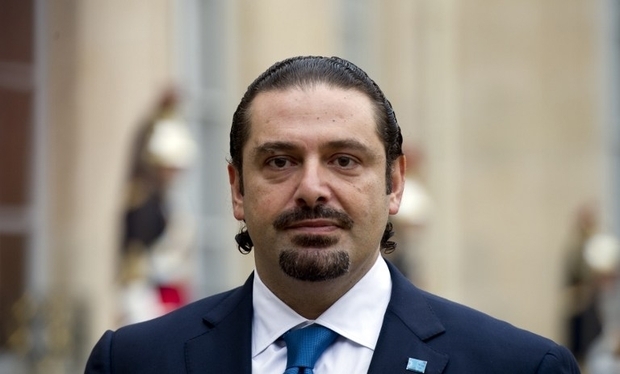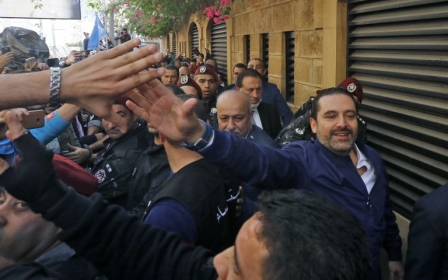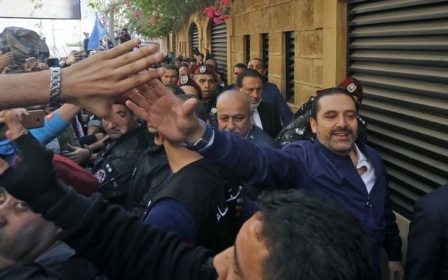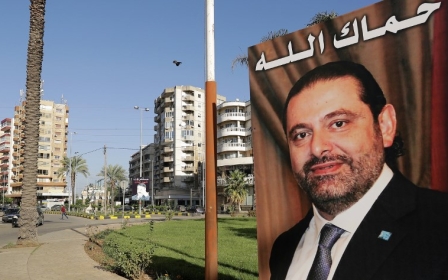Hariri rescinds resignation, month after throwing Lebanon into crisis

Saad Hariri on Tuesday withdrew his resignation as Lebanese prime minister, a month after the shock move drew accusations that Saudi Arabia was holding him hostage and sparked a political crisis.
"The council of ministers thanks the prime minister for rescinding his resignation," Hariri said, reading from a cabinet statement issued after its first meeting since his return two weeks ago.
Hariri announced he was stepping down on 4 November in a televised address from Saudi Arabia, prompting fears Lebanon would be catapulted into a political and economic tailspin.
The resignation was seen as part of the boiling tensions between the Saudi kingdom - which had long backed Hariri - and its regional rival Iran.
In his resignation, Hariri lambasted Tehran and its Lebanese ally, the powerful armed movement Hezbollah, for destabilising his country and the Middle East.
He later said he would consider coming back as premier if Hezbollah stopped intervening in regional conflicts, such as Syria and Yemen.
Lebanese officials, including President Michel Aoun, said Saudi Arabia had coerced Hariri, a long-time ally of the kingdom, into resigning and held him there against his will until an intervention by France led to his return to Lebanon. Saudi Arabia denies this.
After top-level French intervention, the 47-year-old premier returned to Beirut and "paused" his resignation ahead of consultations.
The Lebanese government said in a statement, read by Hariri: "The cabinet thanks its leader (Hariri) for his position and for revoking his resignation."
"All (the government's) political components decide to dissociate themselves from all conflicts, disputes, wars or the internal affairs of brother Arab countries, in order to preserve Lebanon's economic and political relations," Hariri said.
The cabinet also reaffirmed its official policy of "disassociation", or remaining neutral in regional conflicts.
"The Lebanese government, in all its political components, has committed to distance itself from all conflicts, wars, and internal affairs of Arab states," according to the statement.
Return to France
The policy had already been adopted by Hariri's cabinet, formed in 2016 after a settlement across political divides.
That deal put Aoun in the president's office and Hariri at the helm of a government that included ministers from his political rival Hezbollah.
Hezbollah is fighting alongside government forces in neighbouring Syria, has dispatched military commanders to Iraq, and is accused of backing Houthi rebels in Yemen, which the group denies.
Hariri will attend talks in Paris on Friday on the crisis triggered by his recent resignation announcement to be attended by US Secretary of State Rex Tillerson, France said on Tuesday.
"The aim is to support the political process (in Lebanon) at a crucial moment," the French foreign ministry said, minutes after Hariri announced he had rescinded his resignation.
New MEE newsletter: Jerusalem Dispatch
Sign up to get the latest insights and analysis on Israel-Palestine, alongside Turkey Unpacked and other MEE newsletters
Middle East Eye delivers independent and unrivalled coverage and analysis of the Middle East, North Africa and beyond. To learn more about republishing this content and the associated fees, please fill out this form. More about MEE can be found here.




